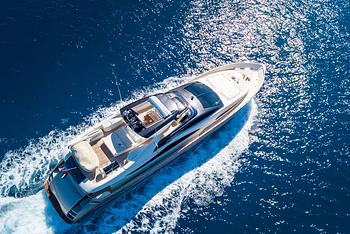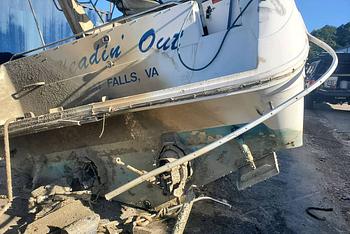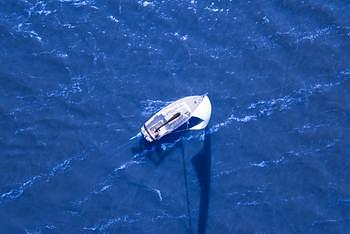The question many new prospective boat buyers ask themselves in whether they need a pre-purchase survey. The answer is a resounding yes. Getting a survey done on a boat you’re potentially going to buy is an important and worthwhile investment. Even those with good working knowledge of boats commission pre-purchase surveys (also known as Buyer’s Report or a Full Condition Survey) to ensure there are no underlying issues.
It is also likely that an insurance company will ask to see the report before issuing cover (See our Guide to Marine Insurance). An expert surveyor will inspect the boat thoroughly, usually whilst out of the water, to ensure the structural integrity of the vessel as well as the electronic systems and safety equipment. The survey is commissioned by the buyer once they have had an offer (subject to survey) accepted on a boat and paid a deposit. The buyer foots the bill, so it’s important to understand the process and how to go about getting your survey completed. See our guide to Marine Surveys.
What is Included in the Report?
A marine surveyor will undertake a thorough check of the boat from the bottom up. They will be inspecting it using official guidelines such as the Code of Federal Regulations (CFR) which cover the minimum requirements for safety equipment, the engine, fuel and electrical systems, waste systems and navigation lights. Charter vessels under 24 metres will be surveyed within the guidelines of The Marine and Coastguard Agency's Code of Compliance. It is a surveyors job to identify areas which are either unsafe or may ultimately cost you money in the future. They do not give a personal opinion on whether you should buy a boat, but rather compile a detailed, factual report from which you can base your own decisions on how to proceed with the sale. The report will include descriptions of the vessel and the systems on board, any findings given in descending importance, the overall condition of the boat and a market value for the boat.
While getting a survey done is vital before committing to a long-term and costly purchase, it is important to understand its limitations. A surveyor won’t take apart any systems and is therefore limited to inspecting only what is visible. What this achieves is giving you an overview of the condition of the boat, rather than an in-depth investigation.
The Process of Pre-Purchase Surveys
The process of getting a marine pre-purchase survey commissioned is thankfully fairly straightforward. The survey will usually take a whole day, longer for very large boats, and the report will take a further few days to compile. So the key is to be patient and not rush the process. Choose the surveyor carefully, and be prepared to wait a few days for the one you want. You will need to liaise with the seller or their broker, and as the boat may have to be taken out of the water, it may take some time to get the marina or shipyard scheduled to do so.
You can attend the inspection if the surveyor agrees, and it will give you a deeper insight into the boat and its systems. If you do now attend, be sure to make yourself available by phone should the surveyor have any pressing issues to discuss on the day.
Sea Trials
Sea trials aren’t included as standard in the pre-purchase survey but can be arranged for an additional fee. The point of the sea trial is not to get a feel for the boat and see if you like it, but to allow the surveyor to check the engine running, as well as the engine shaft, stern packing gland and steering. The hatches will be up and all the systems running, so the fewer people on board the better. Marine surveyors aren’t usually qualified engineers and so if you or they have particular concerns about the engine you could consider hiring an engine surveyor to come along too. This is the time to look out for smoke, vibrations, leaks or any other faults when the engine and systems are under full load.
Surveyors
The first step in getting a marine survey completed is to find a surveyor. There is no legal requirement for a marine surveyor to be registered with an accredited organisation, however it is prudent to choose one which is either highly recommended by your local marina or one who is a member of the Society of Accredited Marine Surveyors or the National Association of Marine Surveyors. These organisations ensure their members have up-to-date credentials, undertake regular training and adhere to a code of ethics. Before choosing a surveyor, ask to see a sample report they have done on a similar boat, and for some references.




